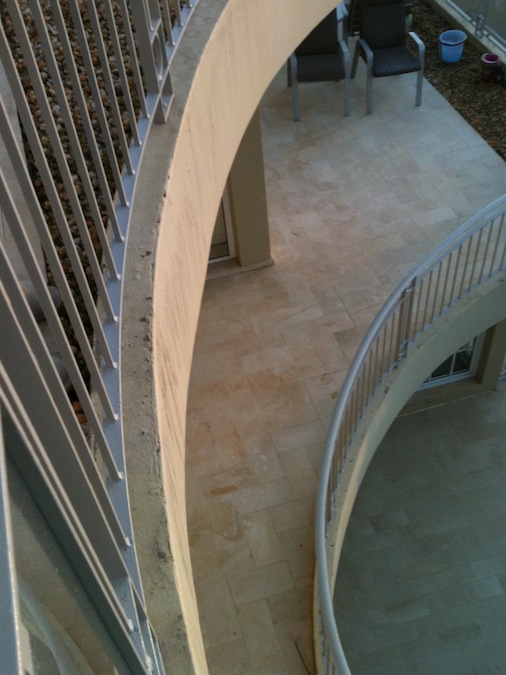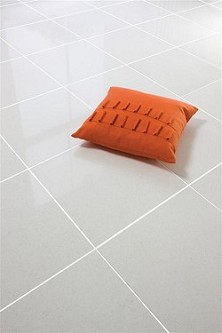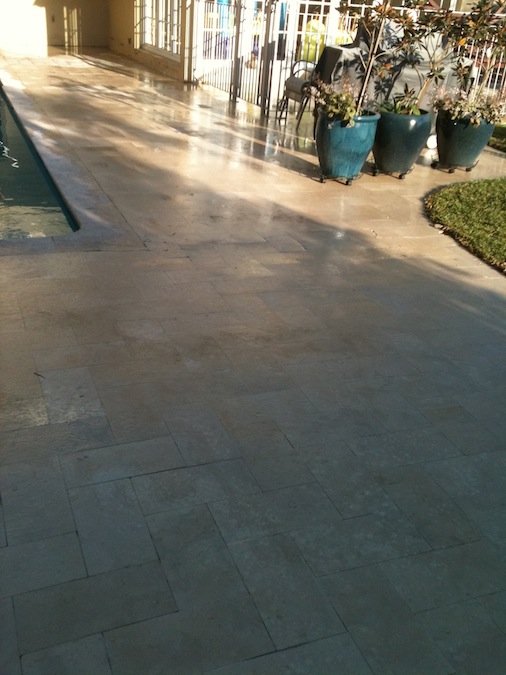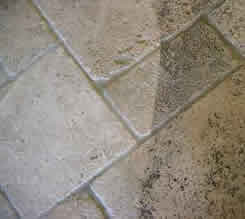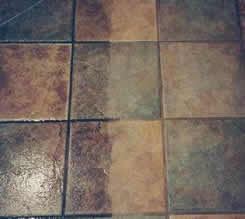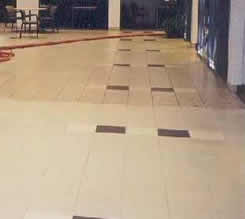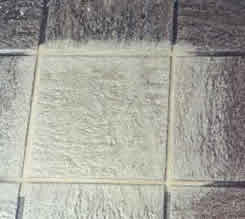Limestone floor cleaning
Limestone is formed at the ocean depth. It only contains calcium carbonate. It is white when natural. It may be coloured by other matierials. It is obtained from shells and bones of marine organisms. The residue that accumulates through the years turn into fossils. Years of heat and pressure from chemical reactions of the sea changes the residue into limestone.
Limestone Floor Cleaning
Do you know that Limestone is porous stone. It easily scratches, stains and cracks. It should not be layered by synthetic sealers or urethane. Our expertise and in-depth knowledge will protect your limestone by utilizing quality penetrating impregnating sealers.
Walking will dull any polished stone floors. Limestone laid on heavy traffic areas will only be dusty, sandy and gritty. The cracks will build up and in time brings lifelessness to the floor. High speed polishers should be used to smoothen and shine the surface of the floors.
Ancient buildings usually have limestone as flooring for durability. French and Spanish are usually porous and chalky in nature. They are easily etched by acids and effervescent drinks. Limestone floors are easily stained with oils and any forms of liquid. Limestone is made up of a composite of calcite and certain Magnesium.
Limestone flooring usually come in colours of black, grey, white, yellow and brown. They have a very smooth granular surface, however their hardness varies. Penetrating sealers should be used to seal and protect limestone floorings from staining and soiling. Only neutral pH base detergents be used for cleaning limestone floorings. They cannot be pressured clean with above 800PSI. This can only be done if the grout is in good state.
A professional maintenance regime is definitely needed to maintain a polished look of any limestone finishing. They look good with polished or low to medium sheen in appearance. Unfortunately, many customers demand extreme shine in its finish. Limestone floorings do not have the gloss a marble or granite flooring will have. Certain limestone with low composite of calcite is extremely difficult to polish. Thereby requiring vitrification to maintain its appearance. Too many vitrification will provide an unnatural plastic appearance on the limestone.
Advantage
- Durability
- Easy maintenance
- Cheaper than marble or granite
- Very moisture resistant
Disadvantage
- Cold and harsh on the soles of the foot
- Needs sealing
- Sensitive to acids
Natural Stone Cleaning, Sealing & Polishing Services
Sealing Limestone Floors
Most forms of limestone are porous in nature. A tablespoon of water spill on a limestone surface will be immediately absorbed. The degree of porosity of the limestone varies with the limestone. The porosity of the limestone will affect the finishing of its surface as highly polished limestone is much more difficult to penetrate than limestone with a matt finish.
Only good quality impregnating sealer should be used for limestone to its nature of being very porous. This will provide the slip resistance and protect the appearance of the flooring. Limestone floorings are usually suitable for both the exterior and interiors of buildings. The impregnating sealers will definitely be suitable to seal the limestone.
It is difficult to maintain limestone flooring if an appropriate maintenance regime is not carried out immediately after installation. Scratching usually occurs as it not usually polished. If an appropriate maintenance regime is carried out to protect the matting on a polished surface, the lustrous appearance will lose its appeal. It is very important to having an appropriate maintenance regime to prevent future staining on limestone floorings.
The calcite composition in Limestone increases its susceptibility to acid spills, food and drink spills. It is highly porous permeating even oils to enter and stain the surface especially if proper impregnating sealers are not used to seal the surface.
Pre-Sealing Preparation
Limestone flooring should not have any other coatings of wax or topical sealer prior to being sealed. All such coatings must be removed prior to applying the new sealer. The limestone floorings is to be thoroughly dry prior to applying the new layer of sealer.
Limestone Floor Care & Maintenance
- Dos
Immediately clean up any spills - Seal all limestone flooring
- Place mats at every doorway
- Only use a microfiber mop to clean limestone floors
- Regularly clean the floor
- Don’ts
Avoid any bleach, ammonia and vinegar when cleaning limestone floors - Avoid any acidic base cleaners
- Avoid any use of abrasive base cleaners or scouring pads
Sydney Tile Cleaning
Sydney Tile Cleaning is the premier natural stone restoration specialists in Sydney Australia. Specialising in cleaning, polishing and the restoration all types of natural stones, Marble, Travertine, Limestone, Slate, Quarry, Other Natural Stone as well as Porcelains and Ceramics. Please select the type of stone you have for more details.
Feel free to call us on 0405 132 132 or use online Contact us form or get a free quote
Sydney Tile Cleaning
Tile Cleaning, Sealing & Restoration.
Top Navigation
Contact Us
Phone: 0405 132 132
Email: info@sydneytilecleaning.com.au
Get Connected
Copyright © 2019. Sydney Tile Cleaning. Designed by: iFocal

